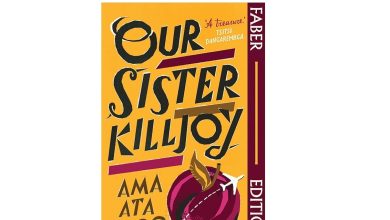
|
Getting your Trinity Audio player ready...
|
If you’ve been a keen observer of the transgenderism discourse, you can tell there’s been nothing as acrimonious and ideologically divisive as ‘the trans wars’, probably since the sex wars of the 1970s and 80s in the global feminist community. People who are pro-transgenderism have asked: “What is your business with trans people? How many trans people do you know as a person living with—sorry—in Nigeria? They don’t even do anything to feminists! They just want to live their lives!” Diplomatic, if not pragmatic, but shallow, on a closer inspection.
First, it is untrue that transgender rights activists (TRAs) “don’t do anything to feminists and just want to live their lives.” The facts don’t lie. Also, the so-called trans-exclusionary feminists (TERFs) do not respond with equal vim to the fervent attacks—on their persons and careers—by TRAs. Words aren’t violence, and there is no legitimate basis to claim that the attacks suffered by people in the transgender community are validated and propagated by “TERFs.” It is also anti-feminist to tell other feminists not to focus on ‘so and so’ matter simply because it has no consequence to their personal lives. Not especially for an issue as intimately linked to women’s rights as the trans ideology is.
Feminism is intersectional– but for all females only
Fundamentally, feminists fight for all women because understand our oppression is interlinked. As such, feminism makes space for women: religious and irreligious, straight and lesbian, career and traditional, young and old, across races and those who deny being women, although they are female. We talk about everything, from cooking to running for political posts, and we affect actions, big or small, in achieving our goals.
There is nothing that says a Nigerian feminist cannot be occupied with advocating against femicide rates in the country while concerned about the rights of young athletic girls in the U.S. An Afghan feminist can lend her voice to female genital mutilation practices in African countries while actively involved in empowering young girls in her country, if not in equal measure.
This is the place of intersectionality in feminism and the empathy it should inspire. It is not an ‘intersectionality’ that has to do with championing the rights of males on the argument that some are “marginalised,” but an intersectionality that concerns women and the various ways class, culture, disability, and other socioeconomic factors. It is also why the word “TERF” is fundamentally untrue for gender-critical women because females who identify as “trans” are also advocated for. So, what do Nigerian feminists have against transgenderism? The answer is in a word as old as time: crushing casual misogyny.
Misogyny is the business of every woman
Misogyny takes expression in both beliefs and actions that feed into each other, creating an overarching social structure of male oppression against women. Transgenderism is a strain of this system, and uniquely, exponentially, despotically so because it is the only concept that not only manifests itself in belief (men can menstruate) or action (sentencing trans-identified males to women’s prisons), it goes a step further in purporting to erase women – as a definable sex class.
Transgenderism is the only form of misogyny that seeks to erase womanhood through a redefinition of all that pertains to being female and a realignment of the materiality of women being adult human females.

While it is okay to do away with derogatory words associated with women and even reject misogynistic ideas, it is not okay to attempt to redefine phrases associated with women’s reality. We can do away with words like “slut,” but not the word “mum.” Clothes can be neutral and free for all to wear, but pregnancy is not something everyone is capable of, regardless of their sex. Everyone has a brain, but not everyone has a vagina. As such, to show solidarity with the trans movement would mean joining to not recognise the existence of adult human females (women) as a unique class on its own.
Also, a woman is not a feeling. Not all women feel the same way. What fundamentally makes a woman is being born female. Women have thus been oppressed by their male counterparts based on being females. Males, therefore, cannot know what it means to be a woman. It’s a reality by the virtue of being born male that they can never relate to. While males can argue they face their unique challenges, those struggles do not make them women or entitle them to identify as one, as they aren’t females.
Moreover, why do most trans males, in claiming they feel like or are women, only align with the seemingly “nice” expectations of femininity, such as wearing dresses, making up, and liking bright colours? Why not the other harsher expectations associated with being a woman, like domestic labour such as cooking and not being ‘problematic?’ No matter how individually different women are, these expectations are true for the majority of us, even if we all don’t conform to them.
The problem with the word “Cis”
Women are not a category of their sex. They can not be a parent branch and a sub-branch. The only way to be a woman is to be female. Emphatically, a woman is an adult human female.
When you look at each of these three descriptors in the dictionary, you will get a robust understanding of who a woman is. A woman is not just a female, hence comparable to an animal; she’s a human female, which has already made provision for the humanity and ranges of personalities women may possess, and she’s an adult one, as opposed to a child (girl).
To render the word “woman” a thing to self-identity into and out of poses a linguistic impasse. If a woman is anyone who identifies as or insists they are one, then there is no further reference to look up. There can be no other word to look up for “woman.” It becomes a circular, stagnant, empty word.
Unlike sometimes subjective words such as creativity, talent, beauty, and funny, these words describe an idea as much as they are relative. If being a ‘woman’ is relative, what is the idea? There has to be a sense or form of what it means to be a woman– without falling back on misogynistic stereotypes. This is our business with the trans movement on an ideological level.
Everybody else, and not only white women, know who women are– rapists do; podcast bros do; predatory Alhajis do. To say, ‘I am a woman if I say I am, and so I am not,’ will not miraculously end male violence against women for thousands of female victims out in Nigeria and every part of the world.
Transgenderism colonises language & arrests thoughts
The trans movement is simply no more than an attempt to arrest thoughts and colonise language while not objectively benefitting women in any way. TRAs demand we accept transgenderism into feminism, even in some instances going so far as to “create” their own feminism or outrightly stating that feminism had outlived its usefulness in the modern world.
There are cultures in the world that describe everything, down to objects and religious ideas, in strictly masculine and feminine terms, as there are cultures that have two-spirit individuals. However, tolerance should not be to demand that one suspend their knowledge of reality and abandon the corresponding language to be politically correct. There are also cultures virulently misogynistic in third-world countries that cannot afford the first-world luxury of identity politics.
Feminists reject nonsensical beliefs that perpetuate the idea of women’s inferiority and oppression. So we reject the ideology of transgenderism & its movement because it does the same: fetishising the female body, insisting a person must be of the opposite sex because they like things that are not traditionally associated with their sex.
We further reject it because of its idea that womanhood is based on ‘feeling’ like a woman, and there are significant differences in the brains of men and women to account for a transgender experience. A woman cannot be a man, and a man cannot be a woman. Simply, end of.






